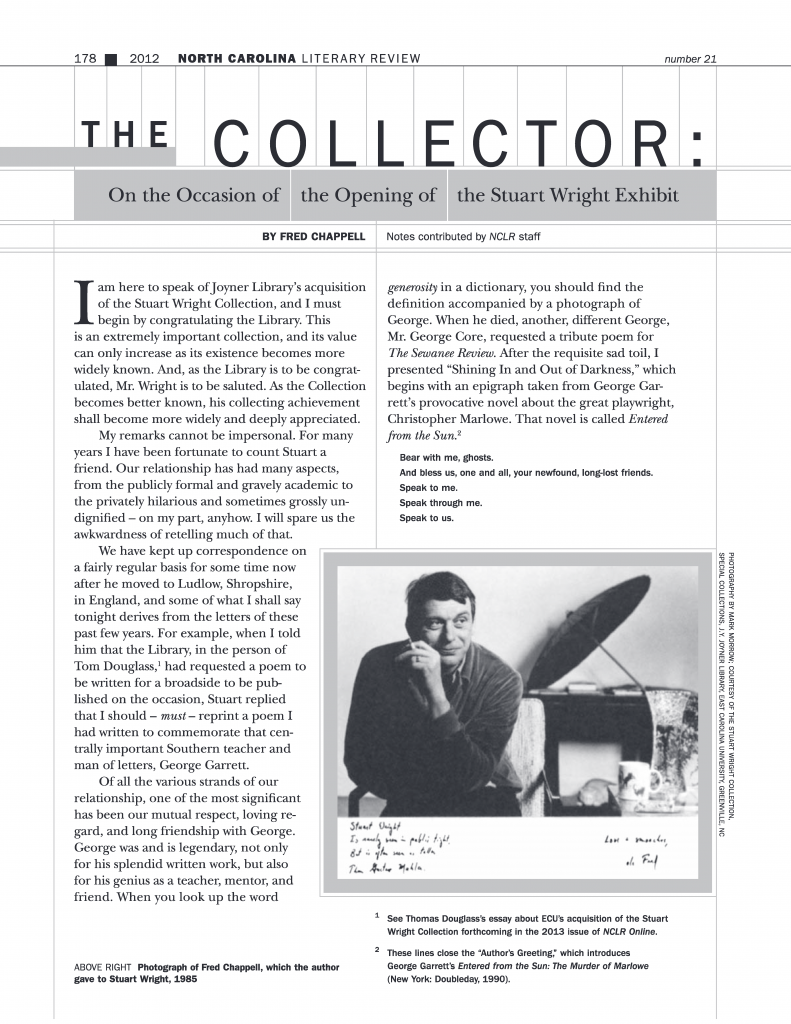by Wendy Tilley, Editorial Assistant
Friday from the Archives: “The Collector: On the Occasion of the Opening of the Stuart Wright Exhibit” by Fred Chappell from NCLR 21 (2012).
When the Stuart Wright Collection opened at Joyner Library in 2012, author Fred Chappell, in his speech to commemorate the occasion, was well aware of how important the collection was: “it is the definitive collection of Southern literature from World War I to the mid-1980s, including complete runs of many authors, along with extensive manuscript materials, holographs, typescripts, letters, association copies, diaries, and so forth; all sorts of complete manuscripts, as well as scraps and oddities.”
But as Chappell makes clear for the audience the value of the collection – which includes a volume of All the King’s Men inscribed by Robert Penn Warren to Brainard Cheney, whose “importance hitherto was largely unregarded but [is] now open to exploration,” as he was the model for the character Jack Burden – he also makes clear the value of their personal relationship. From the “privately hilarious” aspects of their relationship to the poem Wright asked Chappell to reprint as a broadside for the occasion (dedicated to a mutual friend of theirs), one gets a sense of the community made by these scholars, writers, and friends.
And it is this sense of community the Chappell sees in the collection. It is not only the manuscripts, letters, and privately held and beloved books of Robert Penn Warren, Allen Tate, Caroline Gordon, Peter Taylor, Robert Lowell, Brainard Cheney, Eleanor Taylor, Walter Sullivan, John Crowe Ransom, Reynolds Price, Donald Davidson, and John Gould Fletcher, though it is that too and more, but a record of how they lived with and influenced each other. As he says near the end,
Literary scholarship is the art, or science, of finding and making connections, tracing how one train of thought leads to another and blends with it, like rivulets joining streams. One of the goals of this scholarship is to preserve not only the strongest thoughts of men and women but also to discover the literary and historical processes that gave rise to those thoughts.
-Fred Chappell
Read the entire article at Proquest or order the 2012 issue for your collection.
Read the entire article at Proquest or order the 2017 issue.
